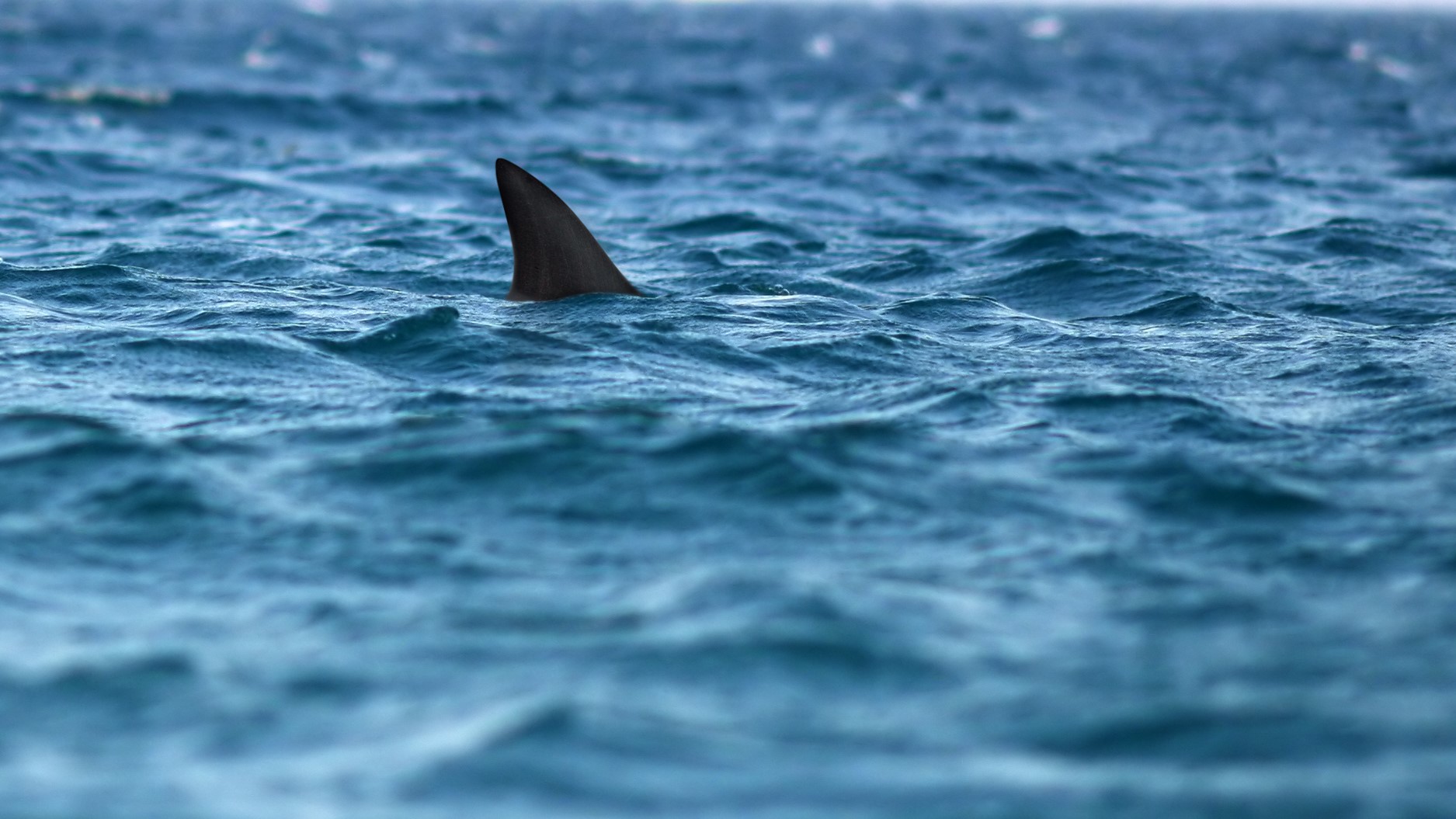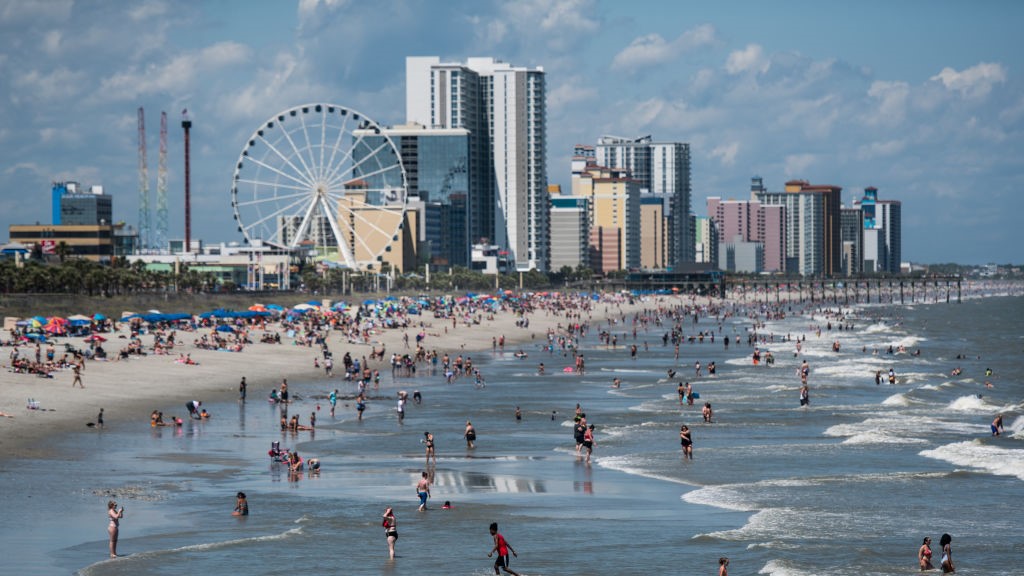Shark bites man wading in waist-high water off South Carolina beach resort
The shark attacked the 60-year-old man off Hilton Head Island where, two years ago, a shark also bit a lifeguard who was checking water conditions in the shallows.

A shark swimming in the shallows near a beach resort in South Carolina has bitten a man in a seemingly unprovoked attack.
The 60-year-old man, who has not been named, was in water just 2 to 3 feet (0.6 to 0.9 meter) deep off the Sea Pines beach on Hilton Head Island on Friday (July 21) when a shark nipped his foot. Shore Beach Service personnel helped the man back to land, and paramedics attended the scene.
"At the time of the bite, the man was in approximately waist deep water," representatives from the Town of Hilton Head Island Government wrote in a Facebook post. "Paramedics transported the man to Hilton Head Hospital for treatment of the apparent bite wound."
Following the incident, Shore Beach Services closed the beach to swimmers for the remainder of the day.
Related: 'I knew it was circling me': Man attacked by shark was waiting to die, then dolphins saved his life
The species of shark involved in the attack is unknown, although several different types are found in these waters, including relatively small coastal species — finetooth (Carcharhinus isodon), blacknose (Carcharhinus limbatus) and bonnethead sharks (Sphyrna tiburo), among others — and large, well-known species, such as tiger sharks (Galeocerdo cuvier), great hammerheads (Sphyrna mokarran) and great white sharks (Carcharodon carcharias). Sharks are mostly found several miles from the shore and their numbers increase with distance from the coast.
Encounters in the shallows can occur, however, and in April, a great white shark washed up on a South Carolina beach in an unusual stranding.
Sign up for the Live Science daily newsletter now
Get the world’s most fascinating discoveries delivered straight to your inbox.

This is the second shark attack off Hilton Head Island in two years: In 2021, a lifeguard who was checking the water conditions was left with deep lacerations after a shark bit his chest. A rescue team took him by helicopter to the hospital, where he recovered.
Shark attacks are extremely rare, according to experts at Florida Panhandle, a website collating data on shark attacks worldwide. "For people that live in the United States, you are approximately 50 times more likely to die by a lightning strike and ten times more likely to die by a firework accident compared to a shark attack," David Angotti, the founder of Florida Panhandle, told Live Science in a statement.
In 2022, researchers counted 57 unprovoked shark bites globally and five fatal attacks, with most of these recorded in the U.S. and Australia, according to Florida Museum's International Shark Attack File. Two non-fatal incidents occurred off Myrtle Beach, South Carolina, where on August 15 two people were bitten on the same day. One of the victims received hundreds of stitches after a shark bit her forearm, WPDE reported at the time.
Daniel Abel, a professor of marine science at Coastal Carolina University, told WPDE that many sharks are found off the coast of South Carolina in the summer. While bites are extremely rare, he recommends swimming during the day rather than at dawn or dusk — when sharks are more likely to be feeding. "Don’t swim where there are schools of small fish offshore. Don’t swim near where people are fishing near piers," he added.
Most shark attacks are a case of mistaken identity, with sharks confusing swimmers with prey such as seals. Great white sharks, for instance, appear to have almost no interest in eating humans, research published in June revealed.
For more shark-related content — and if you're not afraid of jumping in the water — here's how to watch Shark Week, now available on Discovery and Discovery+.

Sascha is a U.K.-based staff writer at Live Science. She holds a bachelor’s degree in biology from the University of Southampton in England and a master’s degree in science communication from Imperial College London. Her work has appeared in The Guardian and the health website Zoe. Besides writing, she enjoys playing tennis, bread-making and browsing second-hand shops for hidden gems.









